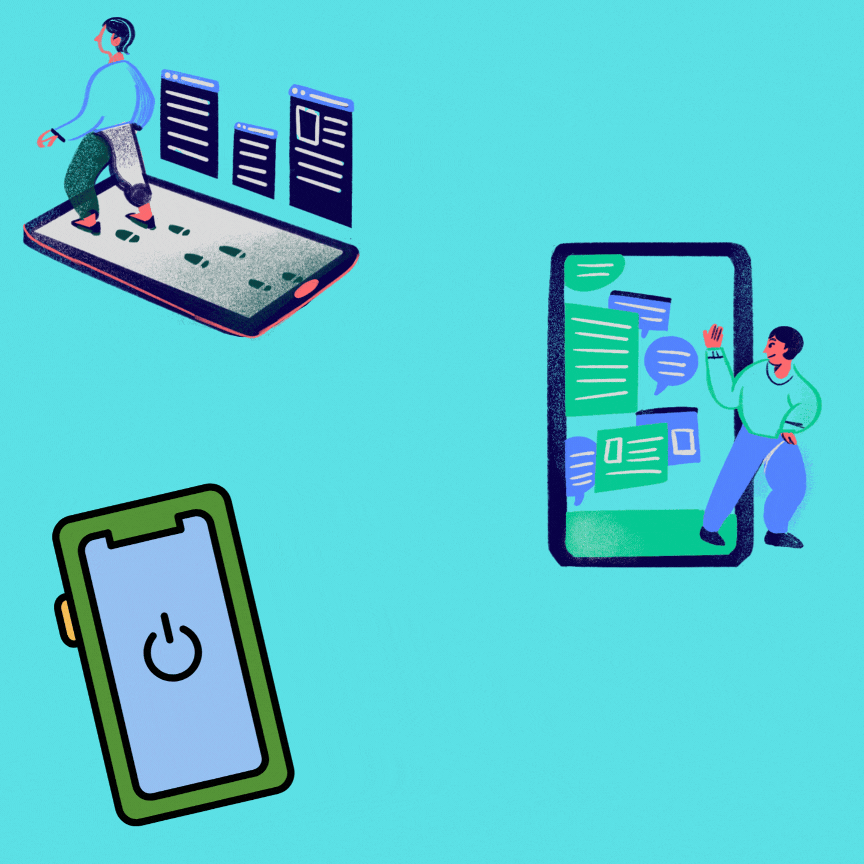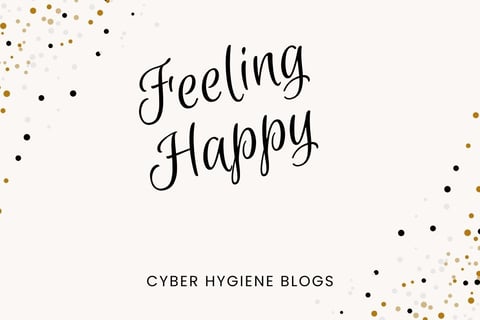the latest updates on cyber threats. Stay safe—visit us at cyberhygiene.blog today!
Digital Detox: Why It’s Important for Your Cyber Hygiene
It explores the benefits of taking breaks from technology to improve mental well-being and online safety. Learn how reducing screen time helps you focus, protect your privacy, and enhance your cyber hygiene practices. Discover simple tips to start your digital detox today for a healthier and more secure digital life.
12/2/20244 min read


Today, we spend a lot of time on our phones, laptops, and other devices. Whether it’s for work, school, or fun, being online has become a big part of our lives. But being online too much can harm both our mind and body. A digital detox means taking a break from screens to feel better and safer. It also helps us stay smart about how we use the internet.
In this blog, we will talk about why a digital detox is good for your health and how it can protect your online safety. Let’s learn why stepping away from technology sometimes can help you live a healthier and safer digital life.
What Is a Digital Detox?
A digital detox means staying away from devices like phones, computers, and tablets for some time. It’s a way to relax your mind, reduce stress, and improve your focus. But it’s not just about feeling better—it’s also about keeping yourself safe online.
When you spend too much time online, you might click on unsafe links, overshare personal information, or forget to update your security settings. A digital detox helps you slow down and think carefully about your online habits.
Why Do You Need a Digital Detox?
1. To Protect Your Mind
Being online all the time can make you feel tired and stressed. Constant notifications, emails, and messages make it hard to relax. Taking a break from screens gives your mind a chance to rest.
2. To Improve Your Cyber Hygiene
Cyber hygiene means staying safe online. When you take time away from the internet, you can check if your devices and accounts are secure. You can update passwords, remove unused apps, and review your privacy settings.
3. To Stop Wasting Time
Many people spend hours scrolling through social media or watching videos without realizing how much time has passed. A digital detox helps you focus on important things like family, hobbies, or learning new skills.
4. To Protect Your Privacy
The more you are online, the more personal information you might share without knowing. Hackers and scammers can use this information to harm you. By reducing your online time, you lower the chances of becoming a victim.
How a Digital Detox Helps Cyber Hygiene
A digital detox is not just good for your health but also improves your online safety. Here’s how:
1. Reduces the Risk of Phishing Attacks
Phishing is when hackers trick you into giving personal information, like passwords. When you’re online too much, you’re more likely to click on fake links or emails. A detox gives you time to learn how to spot these scams.
2. Keeps Devices Secure
When you step away from screens, you can check if your devices are updated. Updates fix security problems and keep your data safe.
3. Improves Password Management
During a digital detox, you can create strong passwords or use a password manager. This is an important part of cyber hygiene.
4. Encourages Backup Habits
While detoxing, you can back up your important files to a secure location. This protects your data if something goes wrong.
Signs You Need a Digital Detox
Here are some signs that you might need a break from screens:
You feel tired or stressed after using your phone or computer.
You spend too much time scrolling through social media.
You find it hard to focus on tasks or conversations.
You feel anxious when you’re not online.
You forget to update your apps or check your account security.
If any of these sound familiar, it’s time for a digital detox!
Simple Steps to Start a Digital Detox
A digital detox doesn’t mean giving up technology completely. It’s about finding balance. Here’s how you can start:
1. Set Screen-Free Times
Choose certain times during the day to stay away from screens. For example, you can avoid using your phone during meals or before bed.
2. Turn Off Notifications
Notifications can be distracting. Turn off unnecessary alerts to stay focused and avoid stress.
3. Take Small Breaks
Start with short breaks, like 30 minutes without your phone. Gradually increase the time.
4. Use Tools to Limit Screen Time
Many apps can track your screen time and help you set limits. Use them to manage your device usage.
5. Focus on Offline Activities
Spend time doing things that don’t need a screen, like reading a book, going for a walk, or talking to friends and family.
6. Review Your Online Habits
Use the detox time to think about how you use the internet. Are you visiting safe websites? Are your accounts secure?
Benefits of a Digital Detox
1. Better Focus and Productivity
Taking a break helps you concentrate better and get more work done.
2. Improved Mental Health
You’ll feel less stressed and more relaxed when you reduce screen time.
3. Safer Online Presence
You’ll have time to improve your cyber hygiene by updating security settings and reviewing your online activity.
4. Stronger Relationships
Spending less time online means more time with family and friends.
A digital detox is not just about taking a break from technology. It’s about creating a healthier and safer relationship with it. By reducing your online time, you can improve your mental health, focus, and online security.
Remember, small changes can make a big difference. Start your digital detox today and take the first step towards better cyber hygiene and a balanced life.
Let’s protect our minds and our digital lives—one step at a time!


